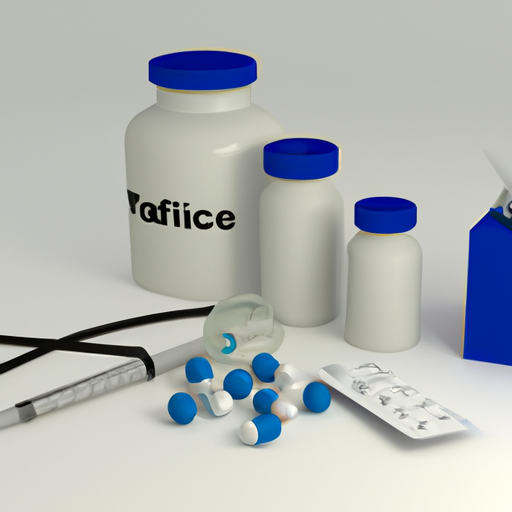1. Chest Pain
Women can experience chest pain as a sign of a potential heart attack. This pain arises from the heart being unable to get enough oxygen from the blood, leading to a discomfort in the chest area. This chest pain can range from a sensation of pressure or fullness in the chest, to a persistent ache that may also radiate out to other areas of the body, such as the shoulder blades, neck, arms, and even the jaw. It may be accompanied by shortness of breath, nausea, and vomiting. It is important to get checked out by a medical professional as soon as possible if someone suspects this to be a sign of a heart attack.
2. Fatigue
Fatigue is one of the most common signs and symptoms of a heart attack in women. This sudden feeling of tiredness can occur before or after the heart attack itself, even when there is no physical exertion. This type of fatigue is not the same as general tiredness or tiredness after a hard day’s work, but is marked by a lack of energy, breathlessness, and difficulty in doing everyday activities.
- Feeling of sudden tiredness
- Lack of energy
- Difficulty in doing everyday activities
- Breathlessness
Women who have fatigue along with other symptoms of a heart attack, such as chest pain or discomfort, should seek medical help immediately. If the symptoms do not go away, it could be a sign of a heart attack, or a warning sign that one might be coming. It is important to talk to your doctor and keep track of any changes in your health to ensure a healthful heart.
3. Shortness of Breath
Shortness of breath is a common sign of a heart attack in women. It is often accompanied by a feeling of tightness in the chest or a squeezing sensation. While it is natural to become slightly short of breath after exercise or a strenuous activity, if such breathlessness persists or worsens, it could be a sign of an impending heart attack. Taking a few deep breaths in a relaxed environment can help to determine the cause of the symptom.
- Shortness of breath is a common sign of a heart attack in women.
- It is often accompanied by a feeling of tightness in the chest or a squeezing sensation.
- Breathlessness persisting or worsening could be a sign of an impending heart attack.
- Taking a few deep breaths in a relaxed environment can help to determine the cause.
4. Further Symptoms
Heart attacks in women can manifest in many different ways, and further symptoms may include chest pain or discomfort, nausea, shortness of breath, and unusual fatigue. Other common symptoms are pain in the back, neck, jaw, or arms, and a feeling of indigestion or heartburn. Women may experience unusual sweating, dizziness, or lightheadedness. It is important to note that some women may not experience any chest pain at all, but may instead experience only mild discomfort or pressure in the chest. Women should be particularly aware of any sudden and unusual symptoms that could indicate a heart attack, and should seek medical attention as soon as possible.
5. Risk Factors
Heart attack risk factors are the same for both men and women, although the risk of death is higher in women than it is in men. Risk factors for heart attack include high blood pressure, high cholesterol, diabetes, lifestyle choices such as smoking and lack of exercise, family history of heart disease, being overweight, stress, and advancing age. Research suggests that women have an increased risk of a heart attack if they have had previously had gestational diabetes, preeclampsia, or delivered a low birthweight baby. Women who are post-menopausal and taking hormone replacement therapy may also be at higher risk. The best way to reduce the risk of a heart attack is to practice a healthy lifestyle and to work with a doctor to manage any existing health conditions.
6. Prevention
Prevention is key to avoiding a heart attack. Women can reduce their risk of having a heart attack by avoiding smoking, limiting alcohol consumption, managing stress levels and engaging in regular physical activity. Eating a diet that is rich in fruits, vegetables, and whole grains can also help reduce the risk of a heart attack. Additionally, it is important for women to manage their cholesterol, blood sugar and blood pressure levels. If these numbers are too high, it can increase the risk of a heart attack. Women should consult a doctor about medications that can be taken to appropriately manage any blood pressure or cholesterol levels that are considered to be high. Finally, it is important for women to receive regular check-ups and take steps to recognize the signs and symptoms of a heart attack in order to receive timely and appropriate treatment.
7. When to Seek Help
Women should not wait to seek help if they are experiencing the signs of a heart attack. Women should be especially vigilant if they are experiencing chest discomfort and shortness of breath with their other symptoms, as this could be a sign of an impending heart attack. In some cases, symptoms of a heart attack can be vague, such as fatigue or nausea in addition to chest pain. In these instances, it is best to trust your instincts and seek medical attention even if the symptoms are not severe. Even if the symptoms are mild, it is important to talk to a physician as soon as possible to ensure that there are no serious underlying issues. Having a full understanding of your health and the risks associated with a heart attack is the best way to prevent problems in the long term.


No Comments